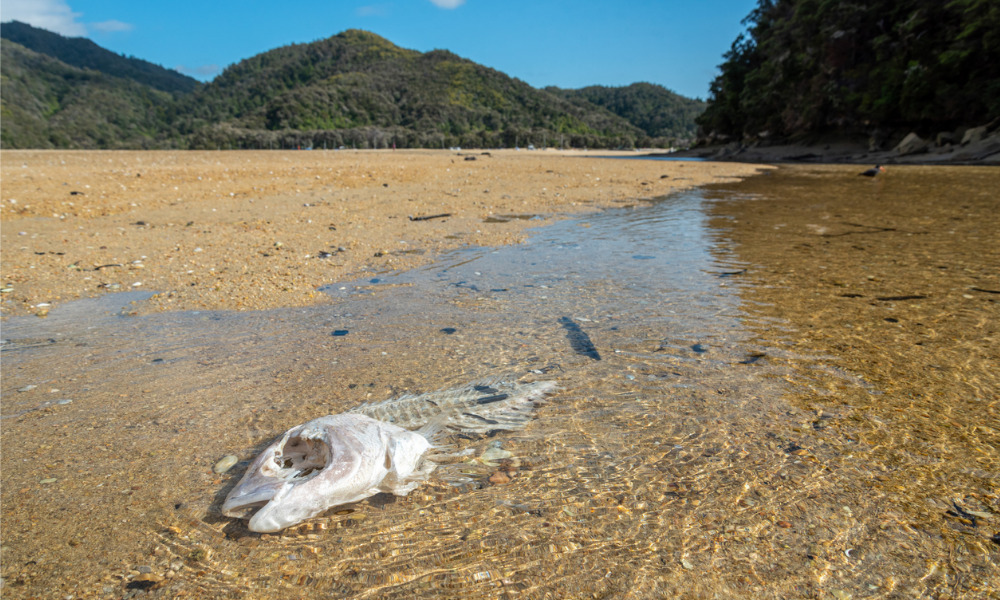
K3 Legal's Harriet Krebs and Evie Bello address the possibility of ecocide becoming an ICC offence

This article was provided by K3 Legal
Climate change is and has been a huge concern, yet many are still taken by surprise at how quickly and exponentially the effects of climate change have increased in recent years.
Science has made it obvious that human consumption and exploitation have caused an ecological overshoot of the planetary boundaries. By this, we mean that our use of the planet’s resources has gone beyond what the earth can sustain.
While there are numerous options, steps and pathways to mitigate the effects of climate change, this article will address just one – criminalising ecocide.
Ecocide is yet to obtain a formal legal definition; however, it is essentially the destruction of the environment beyond repair. An independent expert panel for the Legal Definition of Ecocide was convened in November 2020, and the following definition was crafted:
…“ecocide” means unlawful or wanton acts committed with knowledge that there is a substantial likelihood of severe and either widespread or long-term damage to the environment being caused by those acts.
The term first appeared in the 1970s, suggesting that it was “irreparable damage to the environment in wartime and peace”.
Currently, the International Criminal Court (ICC) is assessing whether ecocide will become the fifth ICC offence. The ICC was established through the Rome Statute to which New Zealand is a party. New Zealand then ratified the Rome Statute by establishing domestic law.
Therefore, if ecocide became a crime in the ICC, New Zealand would have to ratify the crime by establishing domestic legislation invoking the law.
The current offences are:
The draft definitions of ecocide have deliberately excluded examples of what ecocide consists of. We may reasonably expect ecocide to encompass potential crimes targeting the consequences of deforestation, destructive extraction and pollution of air, water and soil.
The Stop Ecocide Foundation has been a driving force behind advocating for ecocide and currently has a strong presence at COP 27. Many hope that with the Foundation’s presence, there will be some forward progression towards ecocide becoming an enforcement mechanism to ensure “bold and immediate actions” help limit global warming.
New Zealand’s current approach to this issue is limited domestically. Ecocide is not a crime, so New Zealand does not have a response to it.
There is existing legislation that regulates issues pertaining to our ecosystem and demonstrates New Zealand’s approach to natural resources (for example, the Resource Management Act 1991, Fisheries Act 1996, Wildlife Act 1953 and Exclusive Economic Zone and Continental Shelf (Environmental Effects) Act 2012). Further regulation is also expected. Currently before the Select Committee is a proposed amendment to the Companies Act to include environmental, social and governance factors as part of a director’s duty to act in good faith and in the best interests of a company. The proposed amendments include the following non-exhaustive list of factors for consideration:
The considerations are not mandatory. In our view, however, the proposed amendments, if codified, will bring these ESG factors to the forefront of board consideration and assist in guiding directors as to best practice when making governance decisions affecting the company.
In addition, the predicted impacts of criminalising ecocide by the ICC would primarily be felt by those bearing the most responsibility, such as directors and heads of corporations, heads of government, key ministers etc. The risks for companies and corporations if prosecuted by the ICC include damage to the companies’ reputation and brand, and possible loss of shareholder and investor support.
The criminalisation of ecocide is meant to be a deterrent, to regulate behaviour for the sake of mitigating the effects of climate change. It will be interesting to see the debates and potential issues raised, including the applicable standard as to what behaviour constitutes ecocide, if ecocide is ratified as a crime in New Zealand, considering that New Zealand is a primary industry-based economy.
This article is part of the K3 Legal climate change series. Read part 1 here, read part 2 here.
Harriet Krebs and Evie Bello
Harriet Krebs works predominantly in criminal litigation and family law, with an interest in environmental matters. As a PAL1 Legal aid provider, Harriet is quickly growing her legal criminal list of accomplishments. Harriet has been the junior in a murder trial, which resulted in a not guilty verdict. She has also twice appeared in the Court of Appeal as a junior.
Within Harriet’s family law remit, under experienced family law expert Toni Brown, Harriet has experience in mediations, including relating to relationship property and maintenance, and childcare arrangements. She has also been involved in an extensive multi-jurisdiction relationship property case extending to the USA, and across both the Family and High Courts in New Zealand. Following her graduation from Otago University, Harriet interned at Blackstone Chambers. She has also assisted in some high-profile New Zealand criminal cases, including assisting with research for Teina Pora legal team.
As part of K3 Legal’s business team, Evie Bello has an interest in commercial, regulatory, consumer and privacy law. After her admission in 2017, graduating from Waikato University (hons, first class, with a second major in psychology), Evie started her career in a large law firm, progressing quickly to work on a range of large and detailed matters.
Since joining K3, Evie has assisted clients with various commercial matters, including shareholder agreements, contract disputes, franchise arrangements, and mergers and acquisitions. Evie is also experienced in advising on supply agreements, terms and conditions and policies and is well placed to assist with such matters.